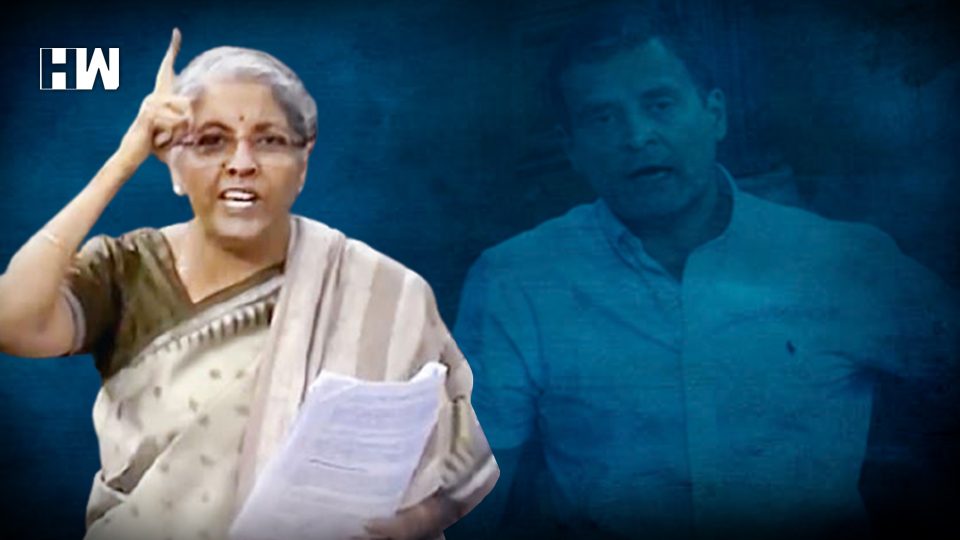There has been a rise in inequality of opportunity, income and wealth in India, due to the disparities in governance and administration and that is where the real narrative lies.
The budge and the Parliament debate on it, has been focussed on the Opposition’s charge that the government and its annual budget support only a select group of Indian businessmen. Allegations of crony capitalism have been traded, with Rahul Gandhi the defacto Congress President labelling the government functioning as ‘Hum Do, Hamare Do’, and P. Chidambaram senior Congressman and the former Finance Minister, calling the budget as for the rich, of the rich and by the rich and as one which has done nothing for the poor. These maybe extremely political statements, but are not totally baseless.
In response to these allegations by the Opposition, the FM Mrs. Nirmala Sitharaman says that it is a false narrative created by the Opposition. She says that it has become a sort of a habit for the Opposition to allege that the government only works for the cronies, inspite of what is being done for the needy and poor, while not denying that more needs to be done for them. In her trademark aggressive defence she reeled out data to contend that the government has done a lot for the poor :-
- 67 crore houses built in PM Awas Yojana.
- 67 crore households electrified.
- 11 lac km of rural roads sanctioned under PM Gram Sadak Yojna.
- 800 mn persons got free food grains.
- 80 mn got free cooking gas connections.
- 91 lakh MSMEs were disbursed Rs. 1.78 lakh crores under the ECLGS.
- 8.22 lakh crores of orders were given under the government’s e market place.
Nobody denies the fact that the needy and poor need to be supported and they must be at any cost, such as to ultimately get them out of poverty, instead of living on government doles/favours, which has not quite happened in India. The debate here is not that about the rich and the poor, but is about the disparity and inequality in the government’s approach/support to the entrepreneurs, such that some select few are the system’s favourites and benefit immensely, while all the others do not. Let the narrative of the debate be not lost in rich versus poor, and let it remain focussed on why the disparities in treatment, to the favoured few businessmen, who benefit the most out of government policies, in a lot of ways.
And what are those disparities, which have resulted in the widening of inequalities and opportunities, between the government’s favourite billionaires and the ordinary unfavoured middle class entrepreneur.
- Access to funds, which is very evident from the fact that despite having surplus liquidity in the system, it is only a select few who have ready access to it on call, while the others do not.
- The government’s tax policies, in respect of GST and income tax are only squeezing out the working capital of firms, which the small ones are unable to replenish and face likely downsizing/closure of business.
- Overbearing and complex laws, that are meant only for the biggies who have access to public funds and hence must be stringently regulated, but they get applied to the small entrepreneur face.
- The government policies are not replenishing livelihood and jobs that impact the MSME/middle sector the most. They however ensure that the big ones flourish.
- The infra deficit which hinders business, hurts the small firm far more than the big ones, who have the resources and the connects to provide for it.
- The uncertainty/delays of courts have again made it a game for the big ones, which the small ones unable to protect their rights in the courts, for want of staying power/resources, and the government has done little about it.
- No respite from red tapism, corruption and bureaucracy, which decimates the small entities in particular.
The fact is that there has been a rise in inequality of opportunity, income and wealth in India, due to the disparities in governance and administration and that is where the real narrative lies. The FM needs to give data of access to public funds and the monopoly of the big ones, the closures/downsizing of the MSMEs, the jobs lost and the delays at courts, to give the real picture and not the data that she’s given, to derail the real debate.
As an independent media platform, we do not take advertisements from governments and corporate houses. It is you, our readers, who have supported us on our journey to do honest and unbiased journalism. Please contribute, so that we can continue to do the same in future.

